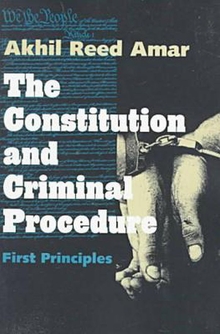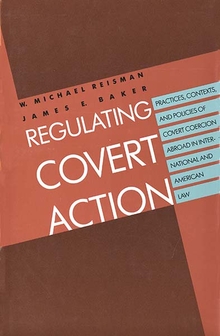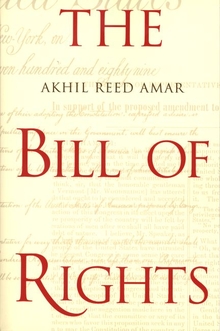The Constitution and Criminal Procedure
WARNING
You are viewing an older version of the Yalebooks website. Please visit out new website with more updated information and a better user experience: https://www.yalebooks.com
First Principles
Akhil Reed Amar
Akhil Amar examines the role of search warrants, the status of the exclusionary rule, self-incrimination theory and practice, and a host of Sixth Amendment trial-related rights. Through a close and original analysis of constitutional text, history, structure, and precedent—leavened with a healthy measure of common sense—he challenges conventional wisdom on a broad range of topics. He argues that the exclusion of reliable evidence in criminal trials is wrong in principle and in practice; unlawfully seized evidence and fruits of immunized testimony should be constitutionally admissible in criminal trials. Deterrence of government misconduct should in general occur through civil damage suits and administrative sanctions rather than through criminal exclusion.
Although addressed to lawyers, judges, and law students, this bold book ultimately targets a much broader audience of policymakers and citizens who seek to understand the principles of this controversial area of constitutional law.
"Amar’s knowledge of history is impressive, and the analytic path traveled to his conclusions is interesting, insightful, and provocative."—Susan R. Klein, Law and Social Inquiry
"The Constitution and Criminal Procedure is a vivid and provocative book—an unlikely mixture of old-fashioned textual inquiry and deeply felt constitutional populism. This book should help invigorate modern debate over the rights of criminals and the rights of the people as a whole."—Cass R. Sunstein
"Akhil Amar is the most creative legal scholar of his generation. In this pathbreaking book, he proposes to reconstruct the entire discipline of constitutional criminal procedure from the ground up. Even those who are inclined to resist his daring conclusions cannot ignore his dazzling intellectual achievement."—Jeffrey Rosen, New Republic
"With creativity and elegance, Amar explodes a perverse, befuddled orthodoxy. In its place, he fashions a new foundation for criminal procedure from systematic, compelling 'first principles' of constitutional law. The book will awaken a movement for legal reform."—Richard D. Parker
"Professor Amar has clearly mastered the forms of legal argument. His book is a model of how history, text, and policy can be combined to create a constitutional argument. . . . His work exhibits an extraordinary grasp of traditional legal materials, cases, legal treatises, law review articles, and the understandings of criminal procedures that animated the framing of constitutional criminal procedures. . . . Constitutionalism done properly is a multidisciplinary exercise. Professor Amar has made an important contribution to that exercise by elaborating in great detail the status of constitutional criminal procedure at the time of the framing and the confused evolution of constitutional criminal procedure at present."—Mark A. Graber, Law and Politics Book Review
"Each essay can be read on its own merits, but together they form a coherent whole. Although the book is addressed to lawyers, general readers can come away with a more informed judgment about the issues raised."—Choice
"Amar's analysis captures the spirit of the times, with its emphasis in many jurisdictions, the United Kingdom notable among them, on striking a new balance between defendants' rights and the public interest in securing convictions within the overall notion of preserving a fair trial. All those who are concerned with criminal procedure, with human rights and with international criminal law will find this book a challenging read."—Colin Warbrick, International and Comparative Law Quarterly
"A provocative and often brilliant book. . . . An abstract architectural plan against which to evaluate today's imperfect reality of criminal justice."—Alan Dershowitz, Slate
"This pathbreaking book will likely have a major influence on the state of our law."—Appellate Practice Journal
Publication Date: March 30, 1998









